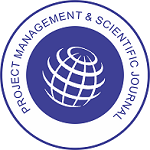|
1Suzzy Krist Addo | 2Dr. David Ackah, PhD. Abstract The District Assemblies’ Common Fund (DACF) is a pool of resources created under Article 252 of the 1992 constitution of Ghana. It is a minimum of 5.0% of the national revenue set aside to be shared among all District Assemblies in Ghana with a formula approved by Parliament. The Common Fund is a development Fund that is intended to ensure equitable development of the various Assemblies in the country. The DACF Administrator is the Manager of the Fund. However, ensuring the success of the Fund is not the sole responsibility of the Administrator but a collective responsibility of all stakeholders including the government, the Administrator, officials of Metropolitan, Municipal and District Assemblies (MMDAs) that receive the fund, Ministry of Local Government and Rural Development (MLGRD), Civil Society who benefited from the fund. The fund is a Development Fund which enables the use of the nation’s wealth throughout Ghana to the benefit of all citizens. However, the studies were not geared towards the role procurement practices play in determining the success or failure of projects funded by the District Development Fund. This backdrop formed the basis of the study for which the general objective of the study was the role of procurement practices on the performance of Projects funded by District Assemblies’ Common Fund (DACF) in Ghana. The specific objectives were formulated after exploration of best procurement practices adopted in other countries and included; the role of stakeholder management, supply chain risk management, contract management, Supplier Appraisal on the performance of projects funded by District Assemblies’ Common Fund (DACF) in Ghana. Theories relevant to this study were reviewed which included; stakeholder management theory, project management theory, Grey Systems theory and Transaction costs Economic Theory. The study variables were discussed under the conceptual framework under independent variables namely stakeholder management, supply chain risk management, contract management, and Supplier Appraisal. Critique of relevant literature to the study was done and research gaps identified. The target population was all the projects funded by District Assemblies’ Common Fund (DACF) in Greater Accra. The study used stratified random sampling, and the sample size was 450 projects. The study used questionnaires for data collection which were self-administered by research assistants. Qualitative and quantitative data were coded and entered in Statistical Package for Social Sciences (SPSS) for analysis. Descriptive statistics were generated. To test the relationship between independent and dependent variables correlation analysis was undertaken where all the independent variables were positively correlated with the dependent variable. To test the predictability role of the model and test of hypothesis, logistic regression was used where the results showed that contract management had the highest predictability role in the model. For stakeholder management, regular communication with stakeholders was ranked as the most effective stakeholder management method followed by mutual trust and respect amongst the stakeholders. Standardising inputs specifications was found out to be the most effective method for supply chain risk. A financial appraisal was found to be one of the most undertaken appraisals across many projects. One sample T-test was used to evaluate the perceived effect of independent variables for which the findings were in line with the results obtained in the logistic regression model. The study recommended that the project and procurement committees should reduce resources meant for supply chain risk management as more emphasis on supply chain risk management would negatively affect the performance of the projects funded by District Assemblies’ Common Fund (DACF). Further adoption of e-contract management was recommended to ensure real-time tracking and retrieval of contracts records. |
Keywords: Procurement Practices, Projects Funded, District Development Fund

